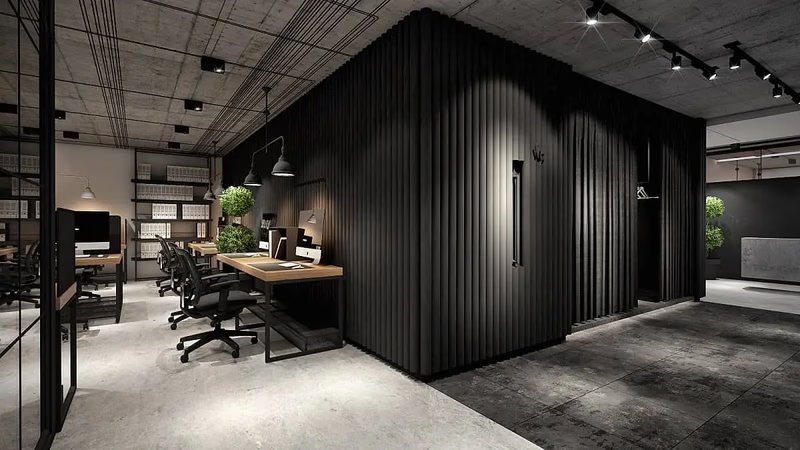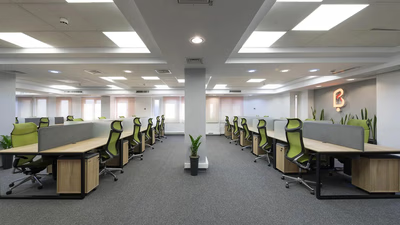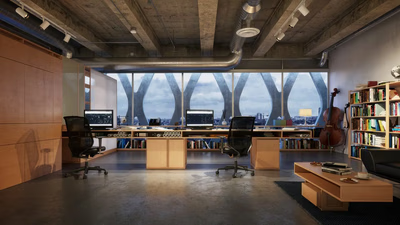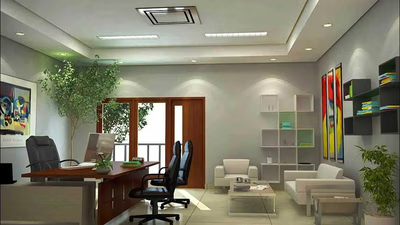
Iconic buildings in West Asia: Burj Khalifa and Milad Tower.
Many cities in West Asia have administrative complexes that house government offices, institutions, and official residences. For instance, the Qasr Al Watan in Abu Dhabi, United Arab Emirates, is a recently constructed landmark that serves as the official presidential palace and a center for political and cultural activities. Administrative complexes in West Asian countries serve as centers for governance, housing government offices, institutions, and official residences. These complexes are often designed to reflect the cultural and architectural identity of the region. Each complex reflects the cultural and architectural heritage of its respective country, blending traditional elements with contemporary design, and contributing to the architectural landscape of West Asia.
In the Middle East and West Asia, there are a number of famous international office buildings and complexes that are recognized as business symbols and business centers of the region. These buildings are generally located in strategic and central locations that provide companies with easy access to urban and transportation services and facilities. Also, these locations are usually located near airports, train stations, and public transportation hubs. The buildings and complexes targeted by large companies have advanced equipment and facilities that are suitable for providing services to companies. Buildings and complexes that attract large companies provide suitable and attractive working space for employees. It includes open spaces, green spaces, relaxing interior design, relaxation spaces and other facilities. Some of these places are:
- Burj Khalifa is one of the tallest buildings and symbols of Dubai. This tower is the tallest in the world and includes offices, hotels, shops and various commercial activities.
- Milad Tower is one of the symbols of Tehran and is very active in the field of commercial, administrative and financial activities. This tower includes corporate offices, hotels, stores and commercial centers.
- Burj Al-Mulamka is one of the famous towers of Riyadh and includes office spaces, hotels and international stores.
- Chelsea Tower is one of the well-known towers in Dubai, which includes office spaces, hotels and international stores.
- Karabagh Tower is one of the symbols of Istanbul and includes administrative offices, hotels and shopping centers.
- Signal Tower is one of the symbols of Doha and includes administrative offices and commercial spaces.
- Dubai International Financial Center is located in the United Arab Emirates , an administrative and commercial complex in Dubai and is known as one of the international financial centers of the region.
It includes office spaces with modern design, security systems, advanced network connections, intelligent management systems and other technical and technological facilities. The buildings and complexes in question usually provide additional facilities and services to companies. These services include conference halls, exhibition halls, restaurants, cafes, fitness centers and other recreational and welfare facilities. Buildings and complexes that attract the attention of large companies provide parking facilities for employees and customers. These facilities include underground or multi-story parking lots, parking for private cars, and parking facilities for guests. Large companies are interested in spaces that respond to their specific and unique needs and provide the expected conditions. As a result, each company may have its own reasons and criteria for choosing to locate in a large international building.
-

West Asia"s administrative complexes serve as vital centers for governance, housing government offices and institutions. Notable examples include Qasr Al Watan in Abu Dhabi, which combines political and cultural functions. These complexes reflect the region"s architectural heritage, blending traditional and modern designs. Major cities feature iconic buildings like Burj Khalifa in Dubai, Milad Tower in Tehran, and Dubai International Financial Center, which symbolize business activity and attract large companies. These structures are strategically located near transportation hubs, providing easy access to urban services. They offer advanced facilities suitable for corporate needs, including open spaces, green areas, and modern amenities such as conference halls and fitness centers. The design of these buildings caters to the requirements of large firms by providing attractive work environments and essential services like parking facilities. Each complex is tailored to meet the unique demands of businesses operating within them.
-

The Middle East hosts numerous local and international companies specializing in office sales and rental services. Prospective clients should conduct thorough research on these companies, including reviewing customer feedback and understanding their track records. Legal and financial consultations are advisable to navigate local laws and regulations effectively. Key players in the region include Regus, Servcorp, I-Workspace, and The Executive Center, all of which offer flexible workspace solutions tailored to various business needs. Countries like the United Arab Emirates, Qatar, Kuwait, and Oman are particularly attractive for multinational companies due to their favorable regulations for office purchases and business operations. These nations are continuously improving their legal frameworks to enhance foreign investment opportunities. Before finalizing any agreements, it is crucial to review contract terms carefully and negotiate aspects such as pricing and rental duration. Viewing office spaces in person can also ensure they meet specific requirements.
-

West Asia offers numerous cities ideal for renting and buying offices, each with unique advantages. Key locations include Dubai, known for its dynamic business environment and international finance; Riyadh, the capital of Saudi Arabia, which hosts numerous international companies; and Tehran, a significant commercial hub in Iran. Istanbul serves as a strategic bridge between Asia and Europe, attracting many global organizations. Other notable cities include Tel Aviv, recognized for its technology sector; Beirut, a vibrant financial center; and Doha, the economic heart of Qatar. These cities boast advanced infrastructure, including transportation networks that facilitate international trade. They also provide a friendly business environment with efficient banking services and favorable regulations. The cultural diversity and recreational amenities in these urban centers enhance their appeal to businesses and expatriates alike. Stability in political and security conditions further supports investment opportunities in these regions.
-

Companies and individuals are increasingly seeking to buy or rent office spaces abroad to expand their operations and tap into new markets. Large multinational corporations often pursue this strategy to enhance their local presence, while startups aim to establish a global footprint. A physical office is essential for compliance with local laws and regulations, especially in industries requiring specific permits. This presence fosters direct communication with foreign customers, enhancing trust and credibility. It also facilitates networking opportunities through face-to-face interactions, which are crucial in sectors like healthcare, education, and legal consulting. Moreover, having an office abroad allows companies to manage local operations effectively, improve service quality, reduce costs, and foster local entrepreneurship. The need for a physical presence varies by industry; for instance, manufacturing firms may require direct oversight of production processes. Ultimately, the decision to establish an office in a foreign country hinges on various factors unique to each business or industry.




